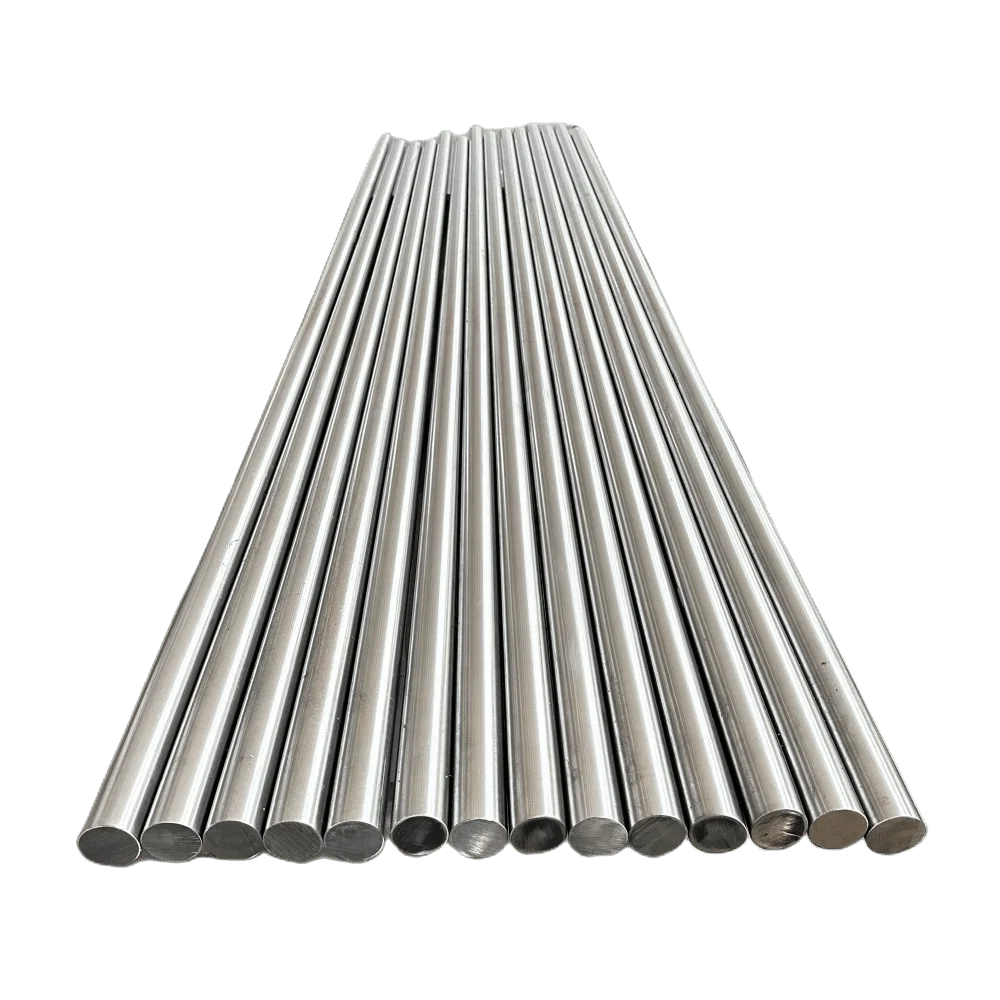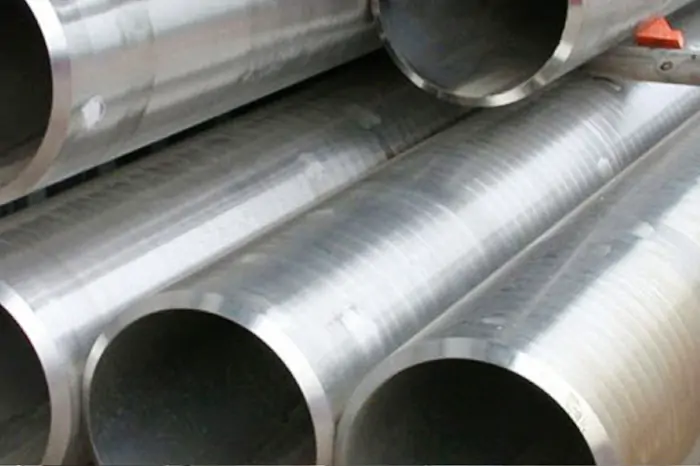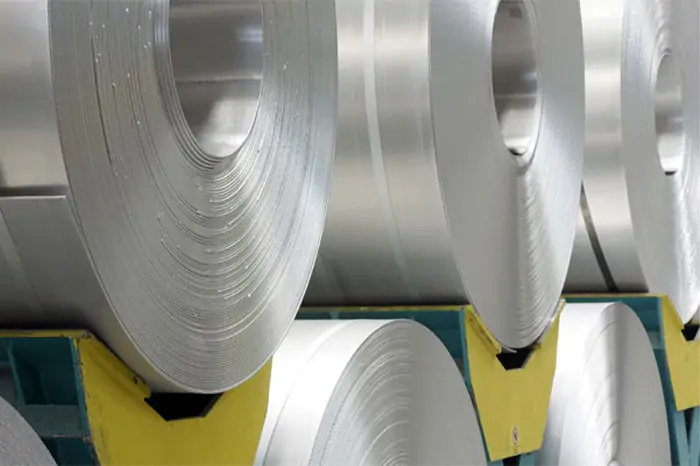Gas turbines are complex machines that play a crucial role in power generation and aerospace applications. Operating at extremely high temperatures, these turbines require materials that can withstand intense heat and stress without losing their integrity. This is where high-temperature alloys come into the picture. These specially designed materials are engineered to maintain strength and resist corrosion at elevated temperatures, making them ideal for use in gas turbines.
Table of Contents
ToggleIn this article, we will explore the world of high-temperature alloys, focusing on their importance, the types used in gas turbines, and their unique properties that make them indispensable in high-performance applications.
The Need for High Temperature Alloys
Gas turbines operate in harsh environments where temperatures can soar above 1500°C (2732°F). At such high temperatures, ordinary metals would melt or deform, causing the turbine to fail. High-temperature alloys are specifically developed to handle these extreme conditions, ensuring the turbines operate efficiently and reliably.
What Makes High Temperature Alloys Unique?
High-temperature alloys, often referred to as superalloys, possess a combination of properties that make them suitable for demanding applications. These properties include:
- Heat Resistance: The ability to maintain strength and stability at high temperatures.
- Corrosion Resistance: Protection against oxidation and other chemical reactions that occur at elevated temperatures.
- Mechanical Strength: High tensile strength to withstand stress and pressure.
These characteristics are crucial for maintaining the performance and longevity of gas turbines, especially in the aerospace and power generation industries.
Types of High-Temperature Alloys Used in Gas Turbines
Various high-temperature alloys are used in gas turbines, each with its own set of properties and advantages. Let’s take a closer look at some of the most common types.
Nickel-Based Superalloys
Nickel-based superalloys are among the most widely used high-temperature alloys in gas turbines. Known for their excellent heat and corrosion resistance, these alloys are often used in turbine blades and other critical components. They maintain their mechanical strength even at temperatures close to their melting points, making them ideal for high-stress applications.
Inconel Alloys
Inconel alloys are a specific type of nickel-based superalloy known for their exceptional performance in extreme environments. They are often used in turbine blades, combustion chambers, and exhaust systems. Inconel alloys provide excellent resistance to oxidation and maintain their structural integrity under high thermal stress.
Cobalt-Based Alloys
Cobalt-based alloys are another category of high-temperature alloys used in gas turbines. They offer superior resistance to thermal fatigue and corrosion, making them suitable for high-temperature applications. Cobalt alloys are often used in the hottest sections of gas turbines, where temperatures can be particularly severe.
Hastelloy for Turbines
Hastelloy is a family of high-performance alloys that contain nickel, molybdenum, and chromium. Known for their exceptional corrosion resistance, Hastelloy alloys are used in various gas turbine components, including combustors and heat exchangers. They offer a good balance of mechanical strength and resistance to chemical attack.
Aerospace Alloys: Meeting the Demands of Flight
In the aerospace industry, the demands on gas turbines are even greater. Aircraft engines must operate reliably at high altitudes and speeds, requiring materials that can endure extreme conditions. Aerospace alloys, including high-temperature alloys, are engineered to meet these challenges.
Turbine Blade Materials in Aerospace
Turbine blades in aircraft engines are subject to intense heat and pressure. Aerospace alloys used for these components are designed to resist creep (slow deformation under stress) and fatigue (weakening due to repeated stress). This ensures that the turbine blades perform efficiently throughout the lifespan of the engine.
The Role of Heat-Resistant Alloys in Efficiency and Safety
High-temperature alloys play a vital role in improving the efficiency and safety of gas turbines. By maintaining their strength and resisting corrosion at high temperatures, these alloys ensure that turbines operate at optimal performance levels. This leads to:
- Improved Fuel Efficiency: Engines that can operate at higher temperatures tend to be more efficient, reducing fuel consumption and emissions.
- Enhanced Durability: High-temperature alloys contribute to the longevity of turbine components, reducing maintenance costs and downtime.
- Increased Safety: By preventing component failure, these alloys enhance the overall safety of the turbine systems.
Future Developments in High Temperature Alloys
The demand for more efficient and environmentally friendly gas turbines continues to drive research and development in high-temperature alloys. Scientists and engineers are exploring new materials and manufacturing techniques to further enhance the performance of these critical components.
Advanced Manufacturing Techniques
Additive manufacturing, also known as 3D printing, is one area of interest. This technology allows for the precise fabrication of complex geometries, potentially leading to improved cooling and performance of turbine components.
New Alloy Compositions
Researchers are also experimenting with new alloy compositions, incorporating elements such as rhenium and ruthenium, to push the boundaries of what high-temperature alloys can achieve. These innovations aim to increase the temperature capabilities and mechanical properties of the alloys, meeting the ever-growing demands of modern gas turbines.
Conclusion
High-temperature alloys are indispensable in the operation of gas turbines, providing the necessary strength, heat resistance, and durability to withstand extreme conditions. From nickel-based superalloys to specialized aerospace alloys, these materials ensure that turbines operate efficiently and safely.
As technology advances, the development of new high-temperature alloys will continue to support the evolution of gas turbines, enabling more efficient power generation and safer, more reliable aircraft engines. Whether in the power plant or the skies, high-temperature alloys remain at the forefront of engineering innovation, driving progress and efficiency in critical applications.









